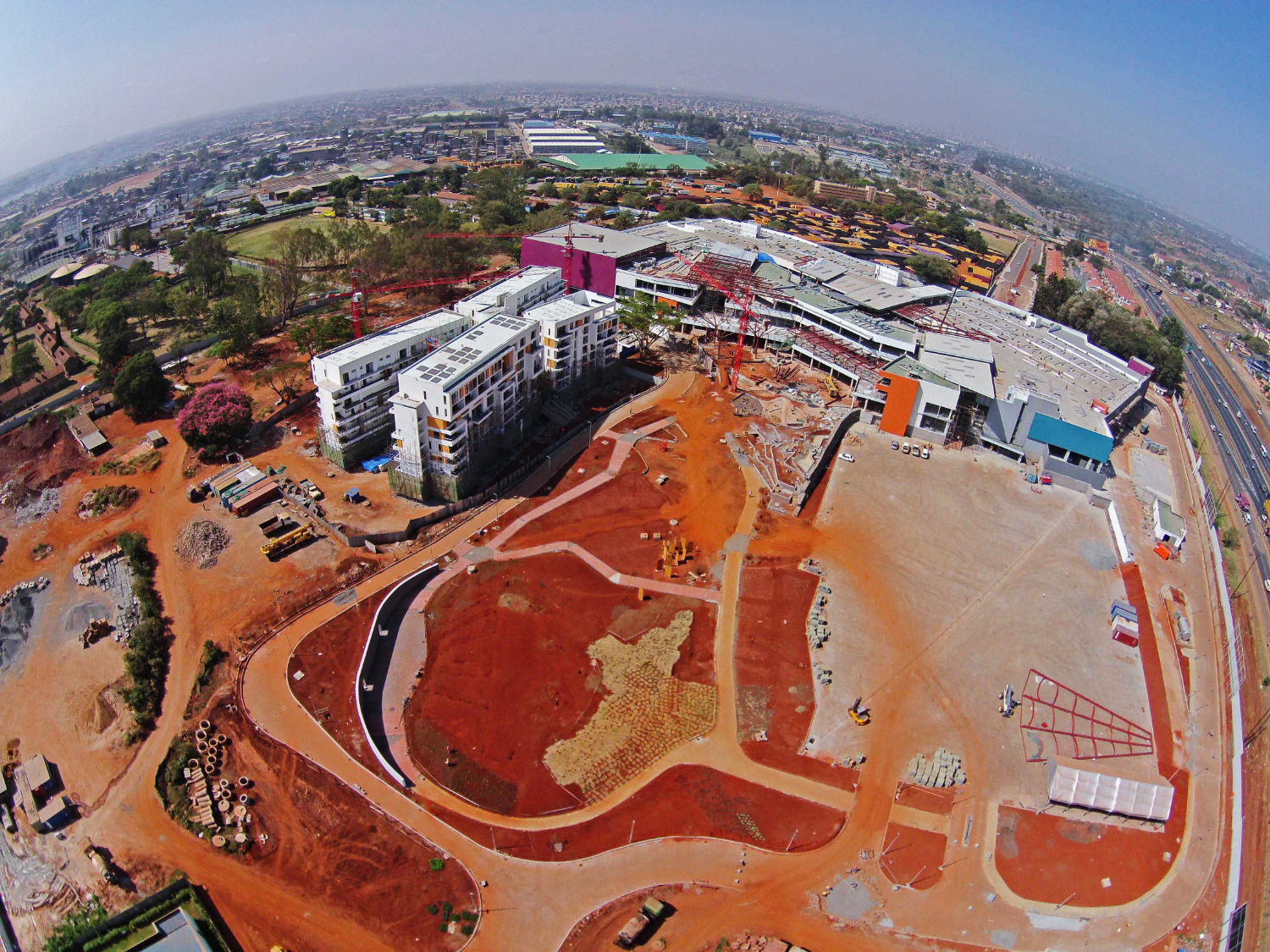Changing the face of real estate in Nairobi
Garden City is a $540m mixed use, greenfield development comprising retail, leisure, office and residential segments. Located on a prime 13-hectare plot adjacent to the Thika Superhighway, it incorporates the largest shopping mall in East Africa.
Most urban development in Nairobi comprises unimaginative, high-density construction that covers the entire footprint of the land parcel – with few, if any, public green spaces. Actis identified the Garden City site as early as 2007, cultivating a relationship with owner, EA Breweries.
The Actis approach
Actis has a successful track record of real estate projects in Kenya. This site provided us with an irresistible opportunity to create an innovative, ambitious development; one that would embody the principles of urban sustainability and become a destination of choice for people from all over Nairobi. Uniquely, it has a public open space at its heart. Other developers regard green space as a waste of money; at Actis we see it as adding value.
What we did
Actis acquired the site in December 2011. From the project’s outset, we adopted a ‘green by design’ approach, which incorporated environmental measures under the seven LEED (Leadership in Energy and Environmental Design) Sustainability Principles.
The first step involved the creation of a masterplan, which set aside 10% of the land parcel for public open space – a radical departure for urban development in Kenya. The second step focused on maximising natural light and ventilation throughout the building frame. The third element involved turning the roof of the shopping mall car park into Africa’s largest solar photovoltaic (PV) carport.
Garden City Mall officially opened in September 2015. With 33,500 sq m of retail space across three floors, it is home to over 120 stores, offering a range of international and the best Kenyan brands. It has three acres of landscaped green space; with extensive planting of indigenous trees and gardens designed for families to enjoy, incorporating play fountains, a playground and an art installation.
Sustainability
With sustainability at its core, Garden City incorporates multiple environmental measures under LEED Sustainability Principles. The mall hosts the largest solar-panelled carport in Africa, generating c.1,200 MWh/year.
Innovative ‘dual-mode’ technology is perfectly suited to locations where land is at a premium, yet energy needs to be supplied close to demand. It also reduces energy bills for tenants and ensures consistency of supply. The mall also incorporates water recycling and harvesting systems that significantly reduce potable water demand which is of vital importance around Nairobi, where regional environmental priority is water security. Some 15% of the building materials comprised recycled content, with 70% of construction materials sourced domestically, providing significant benefits to the Kenyan economy. The site is also close to public transport links and provides facilities to encourage cyclists.
We are proud to announce that these eco-friendly design features saw the mall become the first project in East Africa to achieve a Gold Pre-Certification LEED Building Design rating. It was also voted the “best green building in Sub-Saharan Africa” and also achieved the Green Star sustainability certification.
Shortly after breaking ground, the project was also awarded Vision 2030 status by the Kenyan Government in recognition of its economic growth impact.
The project has also delivered tangible socio-economic benefits. Notable amongst these have been job creation and training – during both the construction and operational phases, which are vital when viewed in the context of Kenya’s high levels of youth unemployment. A monthly average of 1,075 jobs were created over the 21-month construction period of the retail and residential components. This ranged from 600 to a peak of 1,400, and on average 91% of the construction labour force were local people.
Our skills training programme with “Arc Skills” saw over 300 young people trained in construction skills (including 120 women), with 95% obtaining certification. During the operational phase, it is estimated that approximately 1,000 jobs have been created, and 70% of the shopping mall tenants are local firms. Likewise, training and upskilling has benefited many workers, as they learned to integrate new technologies and building styles in the development. Some 65% of the construction spend benefited local suppliers.
Garden City has also established a partnership with local NGO Maji na Ufansi to address water and sanitation issues in local communities and is helping local schools and universities access employment opportunities.
The project has also delivered tangible socio-economic benefits. Notable amongst these have been job creation and training – during both the construction and operational phases, which are vital when viewed in the context of Kenya’s high levels of youth unemployment.
The future
A new Business Park is planned on an additional 15 acres adjacent to the shopping mall and residential site. Situated 9km from the Central Business District (CBD), with excellent transport links, it brings the total of modern executive offices to 60,000 sq m – with market-leading parking ratios.
A four-star 150-key business hotel and a hospital are also planned, with a pedestrian boulevard linking the Business Park to the mall and park. When complete, the entire Garden City site will extend to 47 acres.
